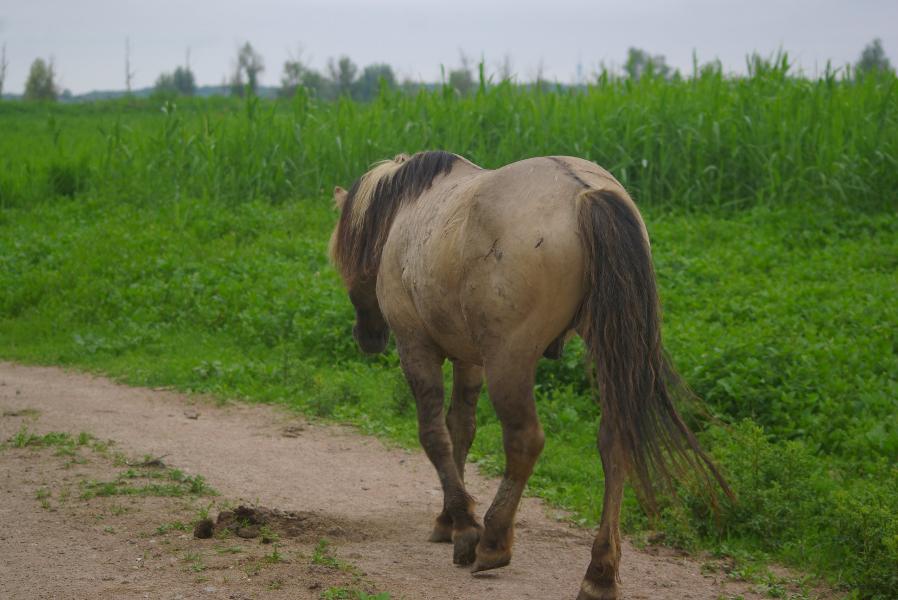
Letter about “Rewilding” and the Oostvaardersplassen, to associations for the protection of nature and biodiversity in Europe
Dear Sir/Madam,
We are sending you this email for the following reason. As managers of the associations Nos Amis Les Animaux 85480 (for animal protectionhttp://www.nosamislesanimaux.com/) and Forests From Farms (for nature, biodiversity and to fight global warming http: // forestsfromfarms. org / ), we were involved in the case of the nature reserve the Oostvaardersplassen Nature Park in the Netherlands. I am of Dutch origin and the big problems inherent in this international project called "Rewilding" have attracted my attention for years. We wish to share information about these problems with you in order to avoid them being repeated elsewhere.
The Oostvaardersplassen, recently renamed Nieuw Land National Park, is a unique nature reserve located between Lelystad and Almere in the Netherlands. It comprises about 56 km² of swamps and protected fields that serve as a migratory area for birds. It has acquired Natura 2000 status. The Oostvaardersplassen park is very often taken as an example of the success of the "Rewilding" phenomenon. Unfortunately the reality is different.
In 1983, Heck cattle were introduced, followed a little later by Konik Horses, and later still in 1992 red deer were released to gain experience with herbivores as a means of maintaining the land by grazing. These animals reproduced significantly. For many years, there have been complaints from both the local and the national population about the mismanagement of this nature reserve which has led to the death of thousands of herbivores each winter. The winter of 2017/2018 was the final straw. More than 60% of herbivores died of disease, malnutrition, hunger. The main cause was obviously too many animals in too small a space which in addition is surrounded by a fence. The solution of expanding the area was not politically acceptable.
In 2018 after pressure from several associations local elected officials changed their policy. To reduce the number of animals, some horses have been relocated and there are still some that will soon go to Belarus. And 3/4 of the deer, 1745 in total, were hunted, or more exactly massacred, between December 2018 and April 2019 (on some days more than a hundred deer were shot). Deer slaughter starts again in September. If we do not find a more humane solution, it will be an exercise that will have to be repeated every year to ensure that the number of animals remains stable. This situation caused a lot of indignation and horror, not only in the Netherlands, but also in other countries. Some international petitions were launched:
and
In addition a video was published: https://youtu.be/zcBLN76d-4s
The experience of the Oostvaardersplassen has brought into disrepute the very concept of "Rewilding".
In other countries of Europe the phenomenon of "Rewilding" is also becoming more and more popular. Of course we fully support the idea of leaving ground to nature. One example is our Forests From Farms project (http://forestsfromfarms.org/EN.php). We have transformed a land of almost 4 hectares into a forest and we see the benefits for nature, for biodiversity. On the other hand, we are of the opinion that we must be very careful and that we must think about the consequences for the future if we introduce herbivores into natural reserves without care and without contraception. The problem of the Oostvaardersplassen comes from the fact that there were no predators in this reserve, with the exception of Man. The wolf has just arrived in the east of the country. In the currrent situation equilibrium can never be reached, which demonstrates the importance of the presence of the wolf and the bear in the circle of biodiversity. Unfortunately, in many countries the wolf is systematically eradicated to the delight of livestock farmers. And brown bears are also not welcome. Hunting, killing and disturbing these useful animals is a huge blow to the ecological balance of natural spaces.
In our opinion, the unfortunate experience of the Oostvaardersplassen project should be more widely known and should act as a wake-up call to all the countries that are currently investing in new “Rewilding” projects, and in particular the release of herbivores such as tame Konik horses, Heck cattle or other large grazers in natural areas. You can ask yourself if it is ethical to “throw tame animals to the wolves”. If so, and if there are no natural predators like the wolf or the bear, eventually a useless slaughter of animals is, unfortunately, often the preferred solution to prevent overpopulation. Together with other local associations, we encouraged the Dutch politicians to find other solutions, such as contraception, which is already practised in the United States for wild horses. But regrettably, elected officials consider that this option is not yet feasible so have rejected it.
Yours sincerely,
Marit de Haan
A french version of this letter is published here